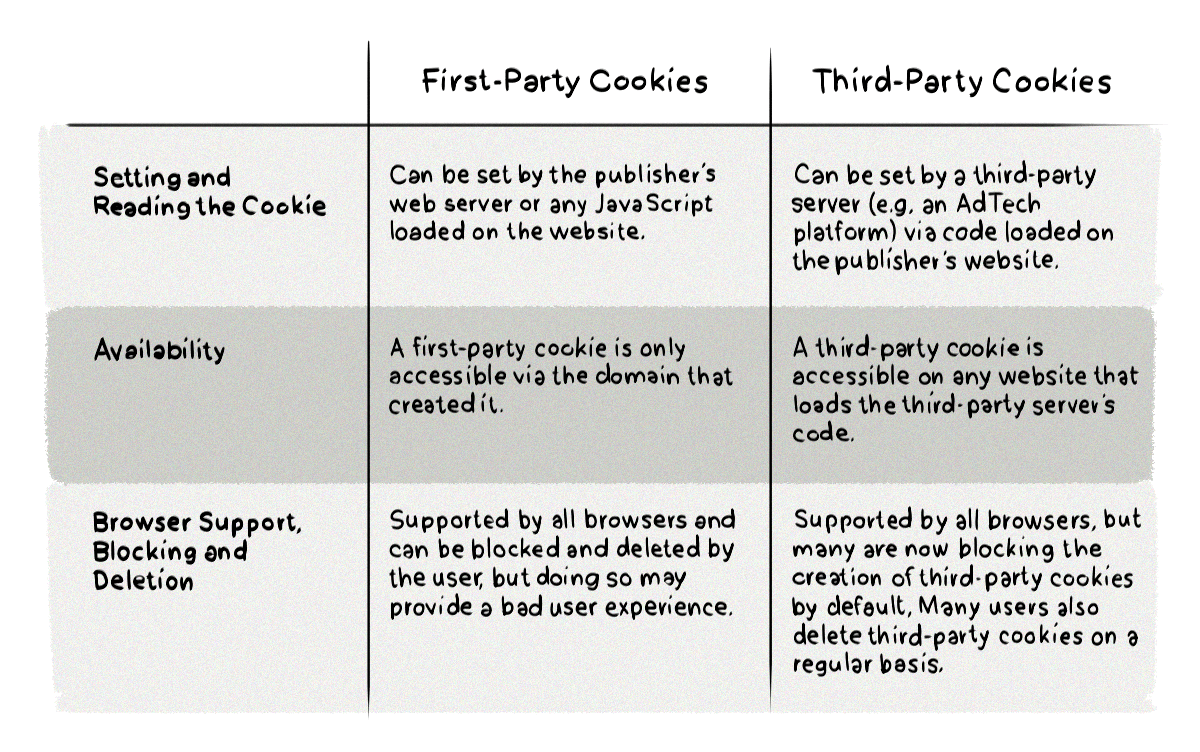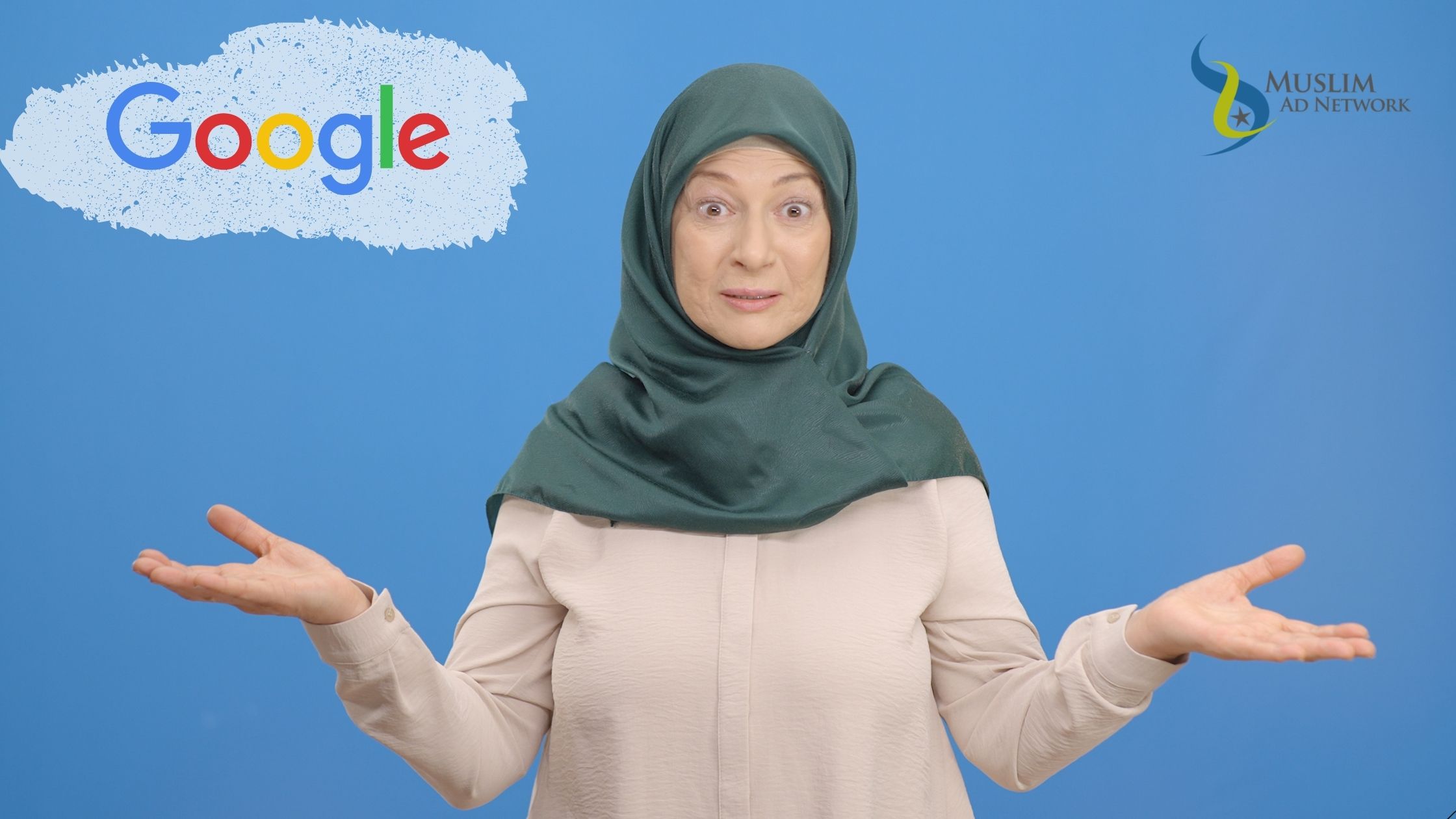
Third-party cookies are disappearing due to recent changes from Google, Apple, Firefox and others. But why is this happening? And what does this mean for marketers, publishers, and advertisers? Let’s take a look.
What’s a Third-Party Cookie?
Simply put, a third-party cookie is created by third-party domains that are not the website that your target audience is visiting. So if a Muslim consumer you are targeting is on xyz.com, domains other than xyz.com – let’s say 123.com and 456.com create these cookies for online-advertising purposes.
These cookies are placed on xyz.com by adding scripts or tags. They are accessible on any website that loads the third-party server’s code.
When your targeted Muslim customer visits xyz.com, their browser requests information from that website, and third-party domains are allowed to set a cookie. Each third-party domain can only read the cookie it created. So there is no way 123.com could access the cookie created by 456.com.

The Death of Third-Party Cookies

Third-party cookies have been headed for the exit ever since Google announced phasing them out completely from its popular Chrome browser by 2024. The move comes as digital advertising witnesses a significant change in how ads are bought and sold.
The change is significant. Chrome commands some two-thirds of the web browser market. Third-party tracking cookies, meanwhile, underpin much of the targeted advertising industry.
Source: The Conversation
Google’s objective is to set open standards for digital tracking to improve user privacy while also protecting the businesses of publishers and advertisers.
Firefox and Safari have already eliminated third-party cookies completely. Advertisers have had some time to understand the effects of this move. However, Google – the biggest player – is still getting ready to follow suit.
Google’s Alternative to Third-Party Cookie Targeting – FLoC

With Google’s changes to tracking, you will not be tracking and targeting Muslim consumers on an individual basis. Google’s alternative will group them instead into a crowd of people with similar generalized interests known as Federated Learning of Cohorts (FLoC).
Google explains that this offers users more privacy. It is anonymized segmentation and retargeting with the goal being to do the job using fewer consumer data.
At the same time Google reassures advertisers that this new approach is approximately 95% as effective as individual targeting:
Federated Learning of Cohorts (FLoC) proposes a new way for businesses to reach people with relevant content and ads by clustering large groups of people with similar interests. This approach effectively hides individuals “in the crowd” and uses on-device processing to keep a person’s web history private on the browser.
By creating simulations based on the principles defined in Chrome’s FLoC proposal, Google’s ads teams have tested this privacy-first alternative to third-party cookies. Results indicate that when it comes to generating interest-based audiences, FLoC can provide an effective replacement signal for third-party cookies. Our tests of FLoC to reach in-market and affinity Google Audiences show that advertisers can expect to see at least 95% of the conversions per dollar spent when compared to cookie-based advertising. The specific result depends on the strength of the clustering algorithm that FLoC uses and the type of audience being reached.
Source: Google Ads & Commerce Blog
What it Means for Muslim Online Advertising
Make no mistake about it. Come 2024 things will change drastically for you when trying to target Muslim customers online. The changes will make finding and engaging one of the most complicated consumer groups even harder. Especially if you will still be depending on Google, Facebook, etc.
This new approach “limits what advertisers and businesses can do moving forward“.
– Kate Jervis, head of analytics at DQ&A by Incubeta
She goes on to mention that in particular, it‘ll hurt SMEs and start-ups that require personalized marketing approaches to find hyper-niche audiences.
There is currently only one platform that can help you target Muslim audiences efficiently even without the drastic changes coming up. After the changes, this platform will be even more vital to your Muslim advertising efforts online:
With exclusive relationships with the biggest Muslim websites, MAN can access first-party data to figure out the interests and behaviors of those Muslim audiences.
Let us have a talk and get you prepared for marketing to Muslims in 2024 today. Don’t wait till the last moment. Contact MAN today in order to get a head start and leave your competitors behind.
start targeting muslim consumers